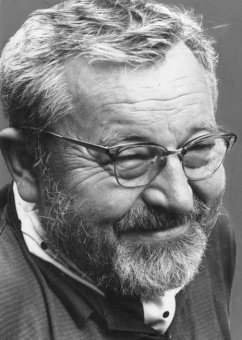Related Research Articles

Czech literature can refer to literature written in Czech, in the Czech Republic, or by Czech people.

Czech cinema comprises the cinema of Czech Republic as well as cinema of Austrian-Hungarian Empire or Slovakia and Germany, while this country was a part of other countries. Some early findings enabling the birth of cinematography were made by Czech scientists in the 19th century.

Jaroslav Ježek was a Czech composer, pianist and conductor, author of jazz, classical, incidental and film music.

Jan Werich was a Czech actor, playwright and writer.

Jiří Voskovec, known in the United States as George Voskovec, was a Czech-American actor. Throughout much of his career, he was associated with actor and playwright Jan Werich. In the U.S., he is known for his role as the polite Juror #11 in the 1957 film 12 Angry Men.
The Devětsil was an association of Czech avant-garde artists, founded in 1920 in Prague. From 1923 on there was also an active group in Brno. The movement discontinued its activities in 1930.
The Emperor and the Golem is a two-part Czechoslovak historical fantasy comedy film produced in 1951. The film was shot in color because of the international release and is set during the reign of Rudolf II, Holy Roman Emperor and King of Bohemia (1583–1611) and takes place in Late Renaissance (Mannerist) Prague. It is one of the best known films of Jan Werich, who's performing a dual role of Emperor Rudolf and baker Matěj. The movie is still quite popular in Czech society, especially due to catchy songs and the impressive portrait of the Golem, a mythical anthropomorphic robot-like creature allegedly once made from clay by a local rabbi.
Group 42 was a Czech artistic group officially established in 1942. The group's activity ceased in 1948, but its influence on Czech literature and Czech art was still evident in further years.

Lieutenant General František Fajtl was a Czech fighter pilot of World War II. He was a British Royal Air Force (RAF) squadron and wing commander and led a group of Czechoslovak fighter pilots who formed an air regiment under Soviet Air Force command, supporting the Slovak National Uprising in 1944. He was dismissed from the Czechoslovak Air Force and was held in prison for a year and a half without a trial after the Communists came to power in 1948, and was only fully rehabilitated after the Velvet Revolution in 1989. He wrote many autobiographical books about his wartime experiences, and was an inspiration for the 2001 film Tmavomodrý svět.

Osvobozené divadlo (1926–1938) was a Prague avant-garde theatre scene founded as the theatre section of an association of Czech avant-garde artists Devětsil (Butterbur) in 1926. The theatre's beginnings were strongly influenced by Dadaism and Futurism, later by Poetism. The theatre was very leftist oriented, but it could also be critical of the Communists. One of the founders, Jiří Frejka, came up with the name in 1926. In the theatre both authorial plays and works by well-established modern authors; such as G. Apollinaire, A. Jarry, J. Cocteau, A. Breton, F. T. Marinetti, and V. Nezval were performed. The modern conception of the scene also laid more emphasis on lighting and the theatrical conception adjured more cooperation and contacts between actors and audience.

Martin Frič was a Czech film director, screenwriter and actor. He had more than 100 directing credits between 1929 and 1968, including feature films, shorts and documentary films.

Workers, Let's Go or Heave-Ho! is a 1934 Czechoslovak comedy directed by Martin Frič. Popular actors and playwrights from Osvobozené divadlo Jiří Voskovec and Jan Werich co-wrote the screenplay and acted in the movie.

The theatre of the Czech Republic has a rich tradition in all genres, including drama, opera, ballet and dance, puppet theatre, black light theatre etc.
How the World Is Losing Poets is a Czechoslovak comedy film directed by Dušan Klein, based on the novella Amatéři. Jak přichází svět o básníky by Ladislav Pecháček. It was released in 1982. The first of the "Poets hexalogy", the title is followed by How Poets Are Losing Their Illusions (1985), How Poets Are Enjoying Their Lives (1988), Konec básníků v Čechách (1993), Jak básníci neztrácejí naději (2004), and Jak básníci čekají na zázrak (2016). The film stars Pavel Kříž, David Matásek, and Miroslava Šafránková.

František Ringo Čech is a Czech musician, politician, and writer.
Lieutenant Colonel in memoriam František Binder was a Czech soldier who participated in the fights to save the Czechoslovak state borders in the unit SOS - State Defense Guard and subsequently for World War II fighting in the Royal Air Force (RAF) against Nazi Germany. After the conflict in the fight with a night fighter he died at RAF home base in England, East Wretham, Norfolk.

František Zelenka was a Czech functionalist architect, graphic, stage and costume designer.
Events from the year 2017 in the Czech Republic
Citron is a Czech hard rock/heavy metal band founded in Ostrava in 1976. The band's history is divided into two distinct eras: between 1976 and 1981, when their name was spelled with a long "ó", Citrón, and they played mainly blues rock. During this time, the band leader was bassist Petr Michalík. The second era, from 1982 until the present, signalled a change in musical style towards hard rock and heavy metal, with drummer Radim Pařízek as band leader and the group's name slightly altered to Citron. As of 2021, Citron has released twelve studio albums, two EPs, and three official compilation albums.
References
- ↑ "Svět patří nám". csfd.cz. Retrieved 28 January 2011.